On 10 June, the most important match in European football will take place. Manchester City and Inter Milan will face each other to clear the last unknown of all competitions: who will be the reigning European champion. A final with a clear favourite and an unexpected contender that opens up space for data analysis with the aim of finding out more about some of the key factors in their respective paths to the final.
INTER MILAN: SERIE A VS CHAMPIONS
It is no coincidence that Inter are the reigning Coppa Italia champions and current Champions League finalists. The opponents are very different in level but the format offers an interesting reading of what Simone Inzaghi proposes when competing in the knockout rounds. These are two completely different Inter sides.
In this table we look at what Inter Milan 22/23 have been like in the Champions League in terms of their style and performance in Serie A: a team prepared to defend lower, give the ball away, attack on the counter-attack and allow a lot more passing before pressing, a role they will surely adopt to face Manchester City in many phases of the final. The scenario does not intimidate the English side, patient and brilliant at combining with the ball and finding chances, but it does explain that they are a very comfortable team when they radically change the way they play and compete.
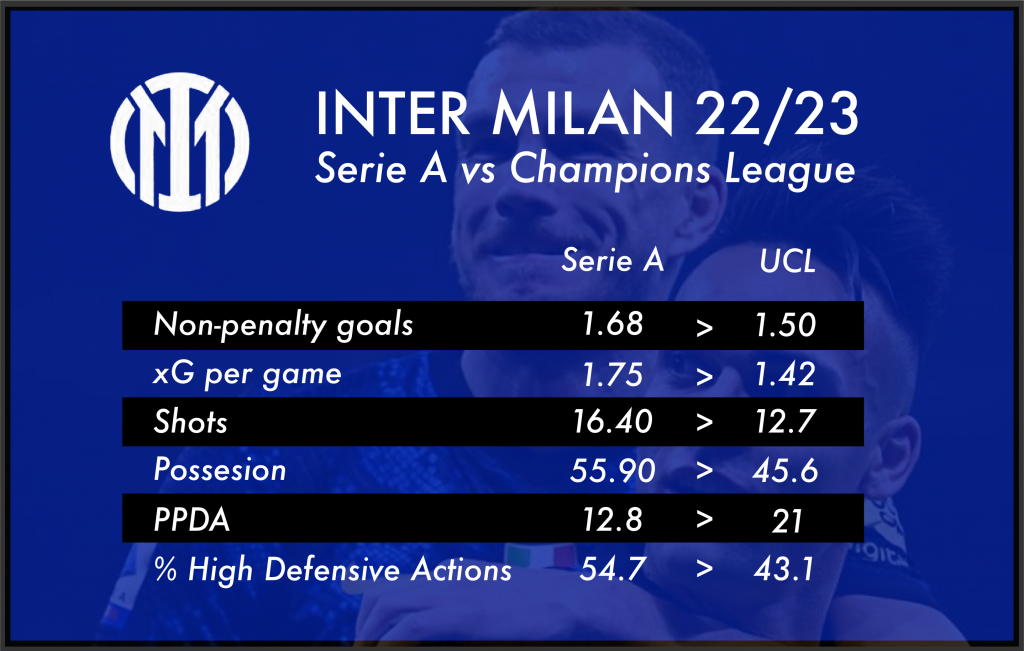
LAUTARO + DZEKO
As with the Lukaku – Lautaro pairing, Inzaghi’s Inter can afford to defend for so long because of the quality of their forwards. The Argentinian and Bosnian have only completed 1572 minutes together this season in Serie A out of the 3695 minutes Inter have played in the Italian championship. While they have shared time and space on the pitch, the vast majority of the team’s attacking metrics have improved, a clear impact of both talent and complementarity.
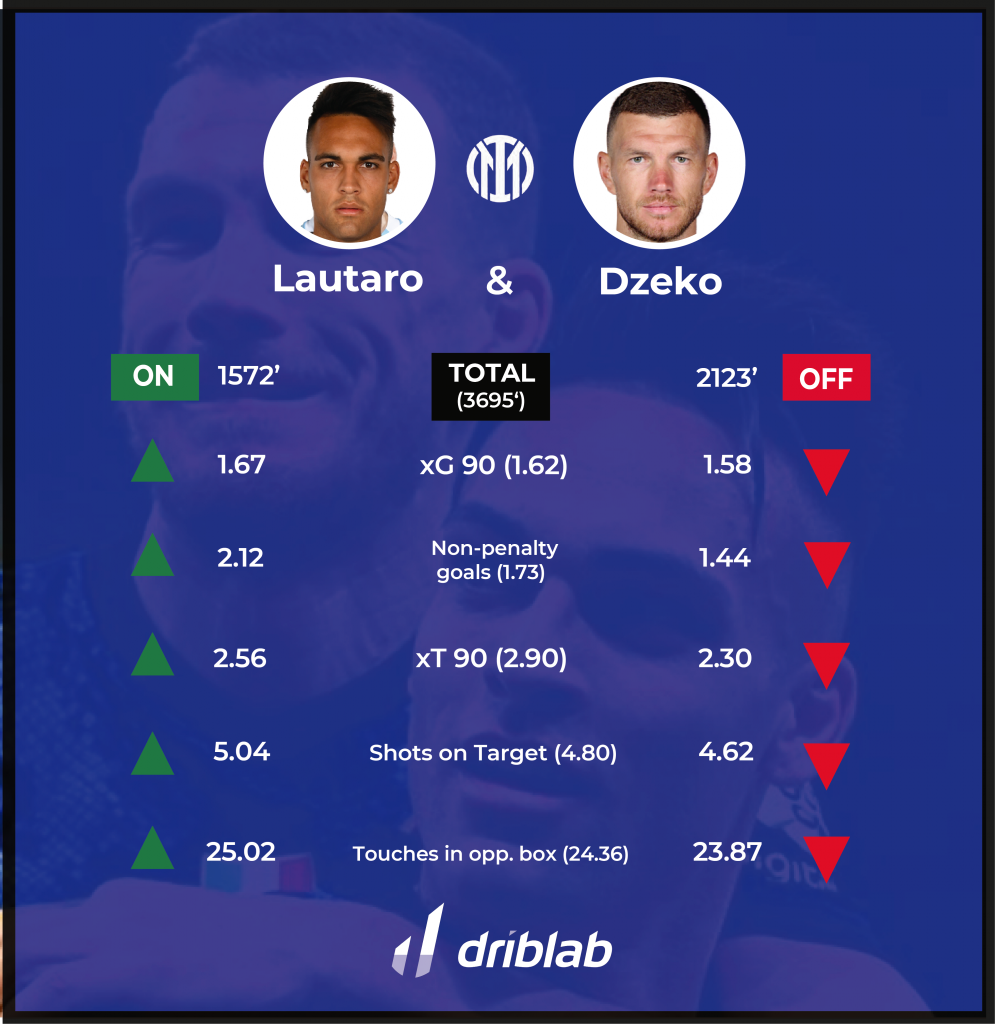
If we look at the progressive passes received by Lautaro and Dzeko in the Champions League we see a very clear offensive pattern when it comes to progressing and initiating attacks from the back. There are many passes initiated from inside the box or in their own half, looking for their great back play and synchronised movements to create quality attacks, as was the case in the tie against Milan. Again, Guardiola has set the team up to defend well centrally, with John Stones as the main tactical novelty of the season playing as a midfielder.
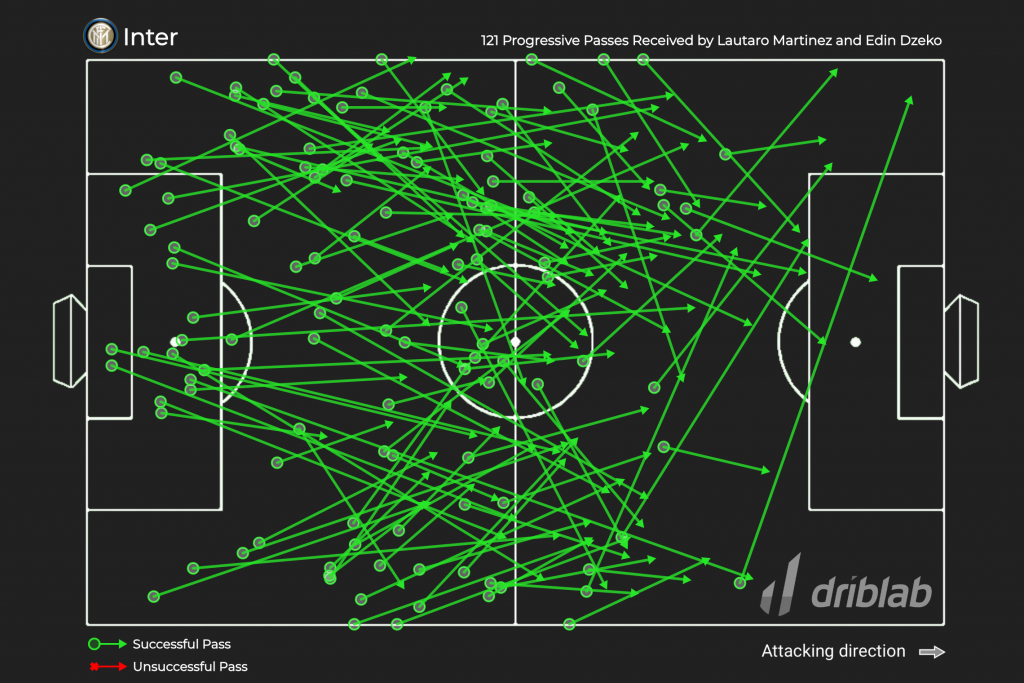
Manchester City: defensive evolution
In the following radar we wanted to highlight four defensive metrics in which Manchester City have improved dramatically. In his eagerness to control every opponent’s counter-attack and reduce clear chances, Guardiola has been making important decisions, such as playing with four centre-backs and bringing John Stones forward as soon as the team reached the opposition’s half. Translated into data:
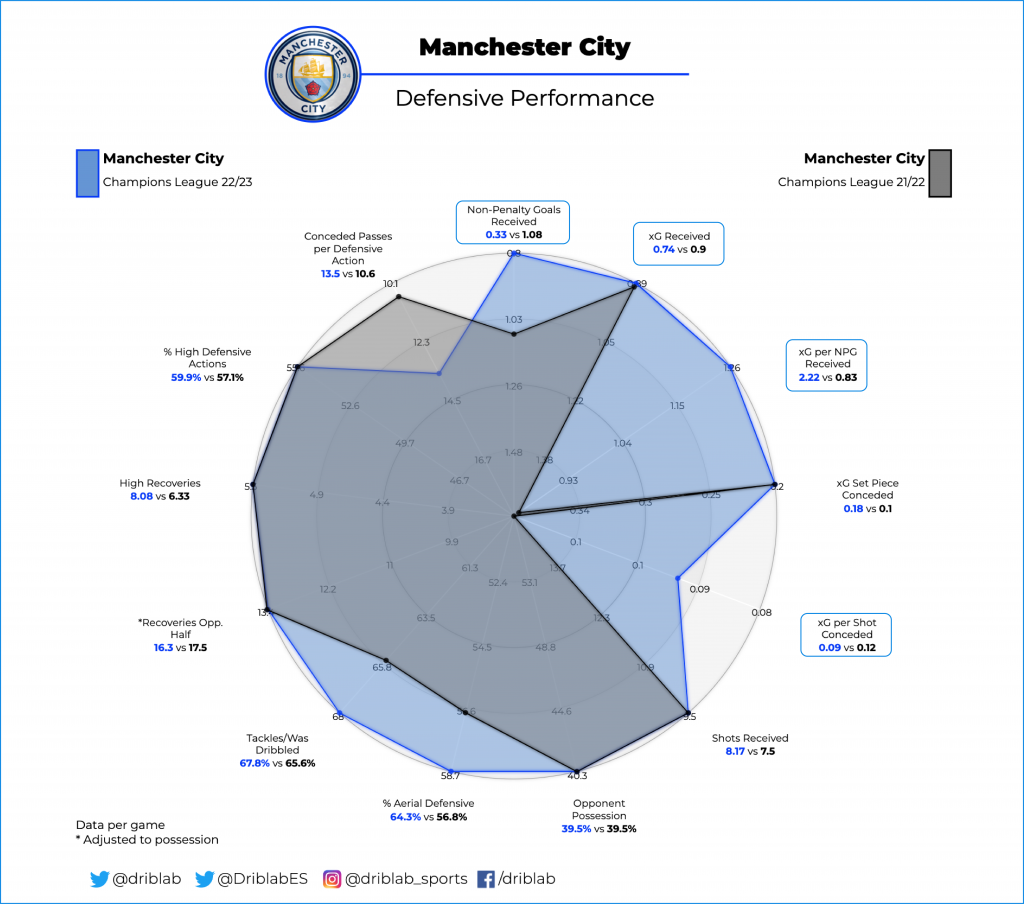
0.33 penalty free goals against vs 1.08 in 21/22
0.74 xG against vs 0.9 in 21/22
2.22 xG per Goals without penalties against vs 0.83 in 21/22
0.09 xG per Shot vs 0.12 in 21/22
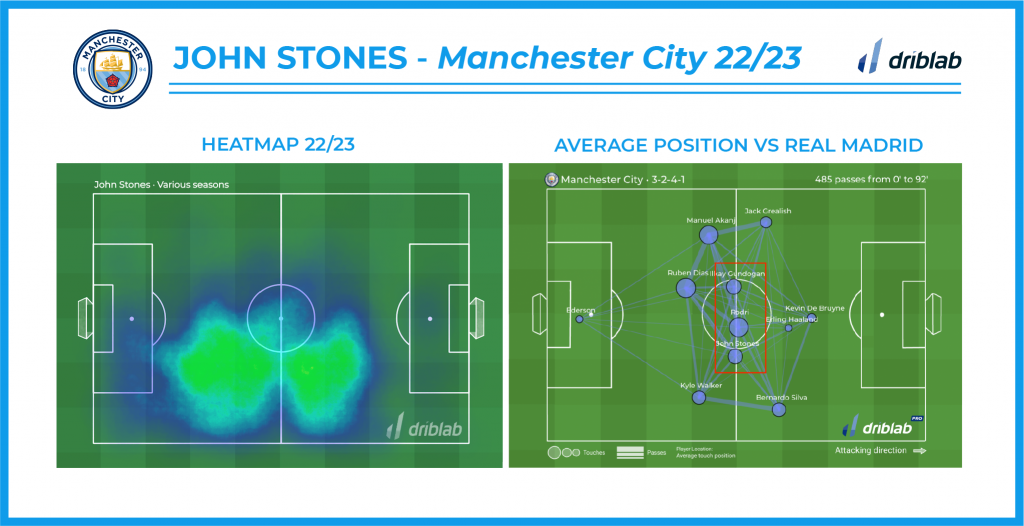
As we discussed, and linking in with the strengths and virtues of Lautaro and Dzeko, John Stones is one of the most important decisions in Manchester City’s defensive improvement in stopping opposition attacks and ensuring more players behind every loss of possession. His heat map, or average position in the first leg against Real Madrid shows his impact and influence in front of the defence.
Founded in 2017 as a consultancy, Driblab has driven innovation through data in all aspects of professional football. Thanks to a transversal model, its database collects and models statistics in all directions. From converting matches and videos into bespoke data for training academies to developing cutting-edge technology, helping clubs, federations and representative agencies in talent scouting and transfer markets. Driblab’s smart data is used by clubs all over the world, with success stories such as Dinamo Zagreb, Real Betis and Girondins Bordeaux among others. Here you can find out more about how we work and what we offer.














